Content analysis report
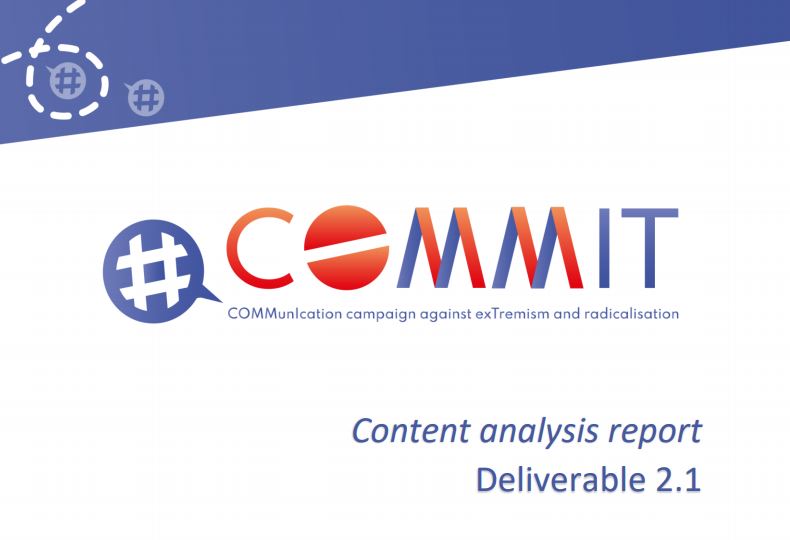
Target audience mapping report
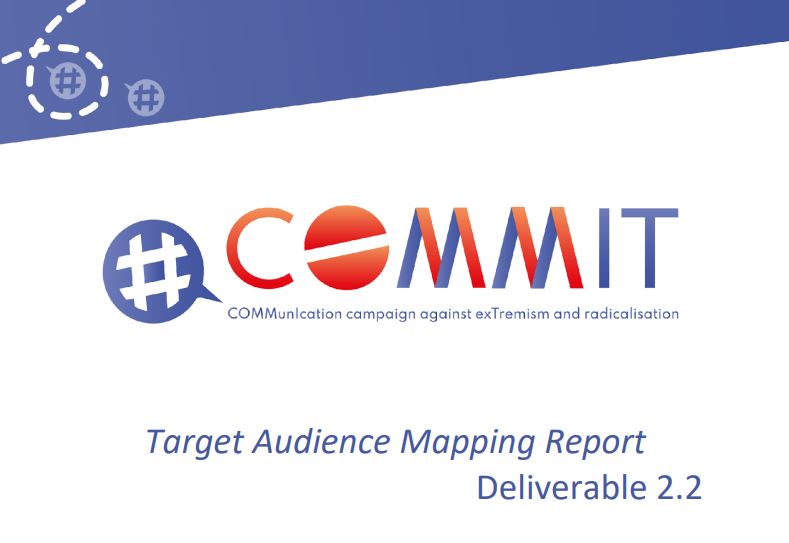
Training Materials for the Capacity Building programme
A field research aimed at finding information useful to the construction of effective communication campaigns on social media about fake news, hate speech and populism, extremism and radicalisation. In particular, through interviews and focus groups, the report has collected: information on the target audience (young people from 18 to 25 potentially vulnerable to extremist propaganda in Italy, the Netherlands, Austria and Greece), regarding their political orientation, religious beliefs, cultural interests, media preferences and practices, socio-economic backgrounds, social networks they operate in, etc.; identification of places, themes and ways that fuel hate speech and the various forms of extremism addressed by our project; detection of any counter- and alternative narratives that can be developed during the communication campaigns.

Training Materials for Workshops with young people
Guidelines and training materials for organising workshops with young people to equip them with critical thinking skills, media literacy and digital skills to be able to identify and resist false information, hate speech, populism and other propaganda promoting intolerance and violence. The workshops also cover the methodology of alternative narratives and digital storytelling in order to engage students in the co-creation of alternative and counter-narratives.
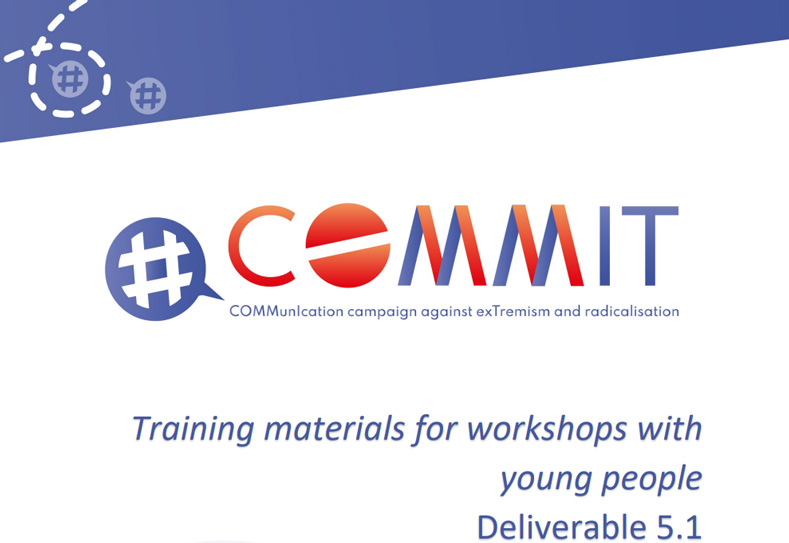
National COMMIT Declarations
A memorandum of understanding with bottom-up recommendations from local participants to the Capacity Building on how to combat extremist content online, prevent radicalisation and promote the European democratic values.
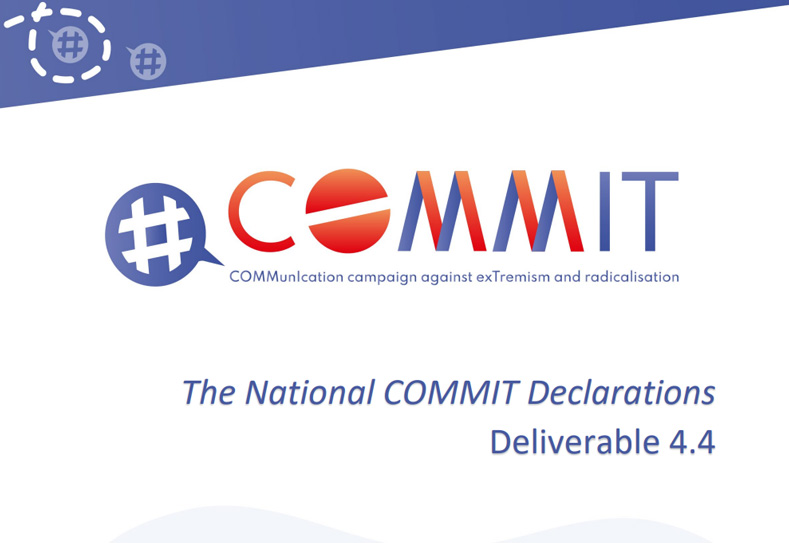
European COMMIT Declaration
Our common “manifesto” to promote a joint commitment to take an action against extremism and radicalism online using alternative & counter narratives implying democratic values.
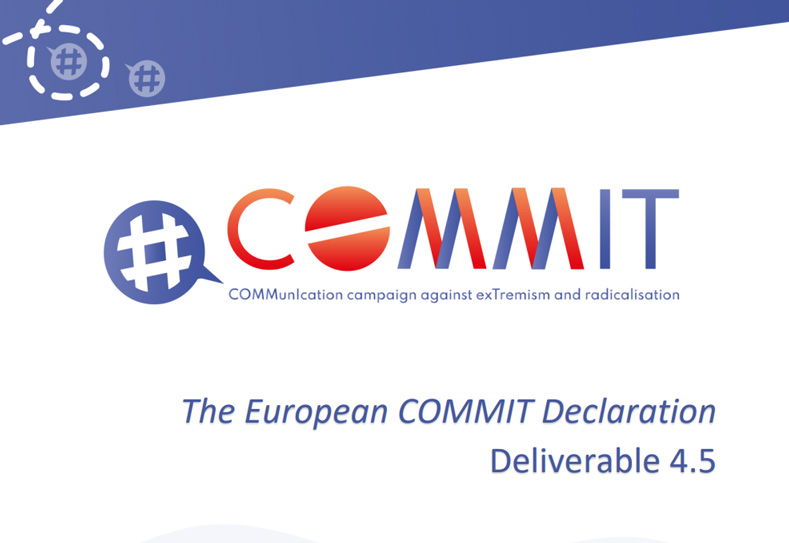
Publication of good practices and lessons learned
A document summarising the lesson learned, good practices, tips and advice from the COMMIT partnership after one year of implementation of the communication campaign on social media, for supporting other practitioners and CSOs in dealing with social media contents’ production, publication and dissemination, for awareness raising intent.
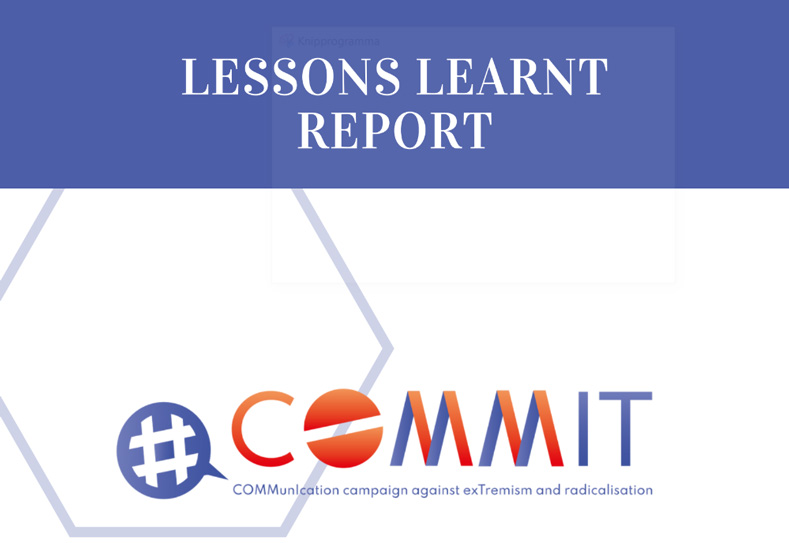

COMMIT hat sich zum Ziel gesetzt, gefährdete Jugendliche in 4
Partnerländern (Italien, Österreich, Niederlande, Griechenland)
vor Extremismus, Radikalismus & Terrorismus zu schützen &
abzuschrecken, indem ihnen Fähigkeiten vermittelt werden, die
es ihnen ermöglichen,
Read more

Το έργο COMMIT αποσκοπεί στην πρόληψη και αποφυγή της βίαιης
ριζοσπαστικοποίησης και στροφής των ευάλωτων νέων στον εξτρεμισμό και την
τρομοκρατία στην Ελλάδα, την Ιταλία, την Αυστρία και την Ολλανδία. Στόχος του
έργου είναι να καλλιεργήσει στους νέους δεξιότητες που θα τους βοηθήσουν: 1. Να
δημιουργούν αντι-αφηγήματα που θα αμφισβητούν
Read more

Il progetto COMMIT mira a dissuadere giovani vulnerabili
in 4 paesi partner (Italia, Austria, Olanda e Grecia)
dall’estremismo, dal radicalismo e dalla violenza,
fornendo loro le competenze necessarie per creare
narrazioni alternative e positive per sfidare e resistere alla
propaganda estremista online promuovendo
Read more

COMMIT heeft tot doel extremisme, radicalisering en
terrorisme onder kwetsbare jongeren in vier landen (Italië,
Oostenrijk, Nederland, Griekenland) te voorkomen en tegen te
gaan, door hen te trainen in het: 1) herkennen en weerstaan van
extremistische online propaganda; 2) verspreiden van
Read more
COMMIT uses technology that is based on artificial intelligence and machine learning.
The algorithms used within this project autonomously search for patterns in the collected data. They help us gain insight regarding the subject people discuss on social media and where signs of polarization can be discerned.
COMMIT always puts the protection of privacy first. We only use data of public social media accounts, and the data on the dashboard can never be linked to an individual.
All our activities comply with the General Data Protection Regulation (GDPR), the European privacy law regarding the protection of personal data.